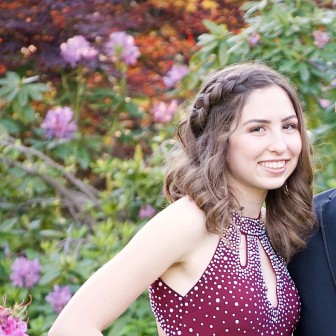
Name: Angela Grant
From: Sacramento, CA
Votes: 0
I joined the
Junior Volunteer program at Mercy General Hospital when I was 15. I
worked at the information desk my first year, helping visitors find
their loved ones and getting patients where they needed to be. Every
Sunday morning, I dedicated three hours to providing essential
information to anybody entering, staying at, or leaving the hospital.
It was a fundamental position to fill, but truthfully it was quite
simple. Towards the end of that first year, I was assigned to train
new incoming volunteers so that they could take over the information
desk – I moved to the Neurology department, or as we like to call
it, Neurocare.
Neurocare is
filled with people that have suffered from all types of brain damage,
ranging from dementia to stroke, even with an entire section of rooms
used as an epilepsy unit. These individuals often have trouble
expressing themselves, whether a result of Broca’s or Wernicke’s
Aphasia causing them to be unable to effectively speak, or memory
loss causing them to be short tempered and irritable. Often times
they want to talk to someone – they merely don’t properly know
how to anymore.
As a Neurocare
volunteer, in addition to stocking essential medical supplies like
gloves and syringes, I spend a lot of my time sitting with and
talking to patients in the department. They may stumble over their
words and lose their train of thought often, but every single person
I have spoken to has had something to say nonetheless. I have
listened to countless life stories – about war and poverty and
abuse, as well as love and stability and comfort – while sharing my
own stories in return. I have shared more experiences than I can
count anymore with people as young as me, as old as my grandparents,
and every number in between. And regardless of what age someone was
when I spoke to them, or what level of trauma they experienced in
their life, they all shared one thing in common: everyone would
always thank me.
If I had to be
completely honest, I don’t feel deserving of a “thank you.” On
several occasions, I have been told how much it means that I actively
listen and converse with those I spend time with, that I openly
accept mistakes they share or tears they shed, that I spread laughter
and kindness. But all these steps I take to bond with the patients
simply feels like basic human compassion – something that everyone
is deserving of regardless of their mental, physical, or financial
state. It should be commonplace, not a rare sight. I want to be able
to spread such compassion. These experiences I’ve gained and shared
have resonated with my career goals: I want to pursue medicine so
that I can continue to help people and make an impact on their days
and even lives.
Since I started the program, I have spent nearly 300 hours
volunteering at Mercy. I’m not done yet though, and I don’t plan
on stopping anytime soon.